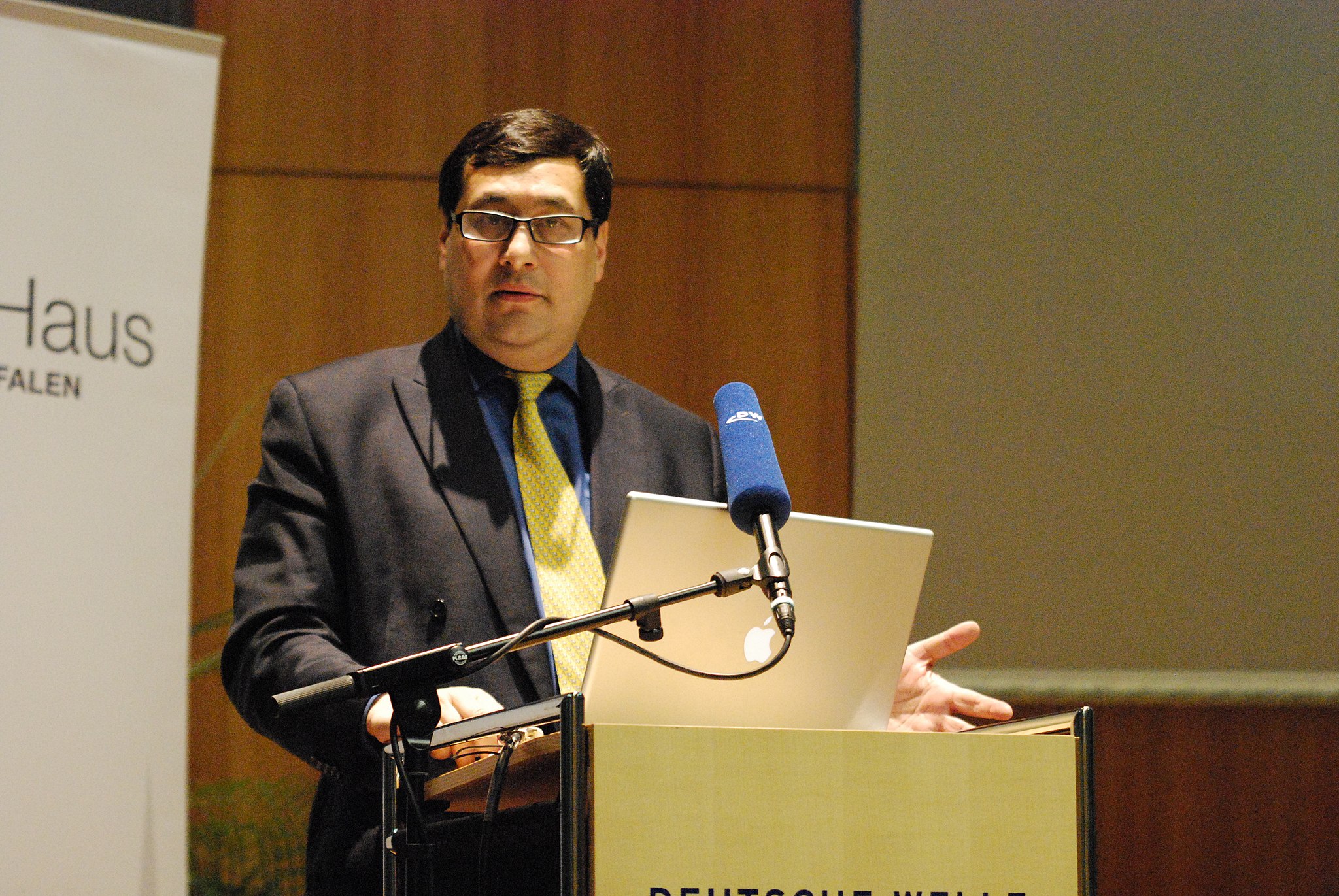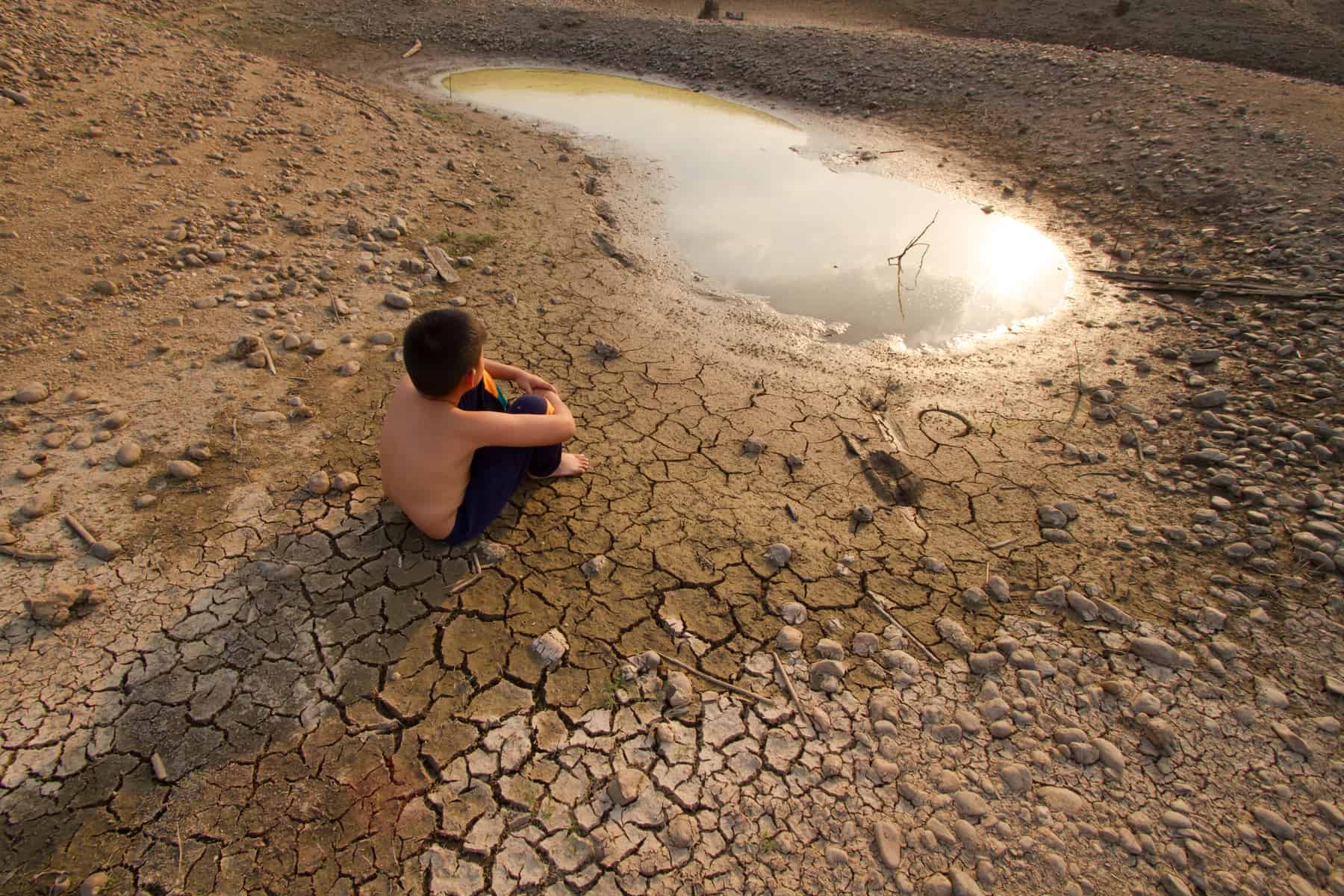Adil Najam is the inaugural dean of the Pardee School of Global Studies at Boston University and former vice chancellor of Lahore University of Management Sciences, Pakistan. He talks to Science Communication Fellow Parul Tewari about his time as a participant of the IIASA Young Scientists Summer Program (YSSP) and the global challenge of adaptation to climate change.
How has your experience as a YSSP fellow at IIASA impacted your career?
The most important thing my YSSP experience gave me was a real and deep appreciation for interdisciplinarity. The realization that the great challenges of our time lie at the intersection of multiple disciplines. And without a real respect for multiple disciplines we will simply not be able to act effectively on them.

Prof. Adil Najam speaking at the Deutsche Welle Building in Bonn, Germany in 2010 © Erich Habich I en.wikipedia
Recently at the 40th anniversary of the YSSP program you spoke about ‘The age of adaptation’. Globally there is still a lot more focus on mitigation. Why is this?
Living in the “Age of Adaption” does not mean that mitigation is no longer important. It is as, and more, important than ever. But now, we also have to contend with adaptation. Adaptation, after all, is the failure of mitigation. We got to the age of adaptation because we failed to mitigate enough or in time. The less we mitigate now and in the future, the more we will have to adapt, possibly at levels where adaptation may no longer even be possible. Adaption is nearly always more difficult than mitigation; and will ultimately be far more expensive. And at some level it could become impossible.
How do you think can adaptation be brought into the mainstream in environmental/climate change discourse?
Climate discussions are primarily held in the language of carbon. However, adaptation requires us to think outside “carbon management.” The “currency” of adaptation is multivaried: its disease, its poverty, its food, its ecosystems, and maybe most importantly, its water. In fact, I have argued that water is to adaptation, what carbon is to mitigation.
To honestly think about adaptation we will have to confront the fact that adaptation is fundamentally about development. This is unfamiliar—and sometimes uncomfortable—territory for many climate analysts. I do not believe that there is any way that we can honestly deal with the issue of climate adaptation without putting development, especially including issues of climate justice, squarely at the center of the climate debate.
COP 22 (Conference of Parties) was termed as the “COP of Action” where “financing” was one of the critical aspects of both mitigation and adaptation. However, there has not been much progress. Why is this?
Unfortunately, the climate negotiation exercise has become routine. While there are occasional moments of excitement, such as at Paris, the general negotiation process has become entirely predictable, even boring. We come together every year to repeat the same arguments to the same people and then arrive at the same conclusions. We make the same promises each year, knowing that we have little or no intention of keeping them. Maybe I am being too cynical. But I am convinced that if there is to be any ‘action,’ it will come from outside the COPs. From citizen action. From business innovation. From municipalities. And most importantly from future generations who are now condemned to live with the consequences of our decision not to act in time.

© Piyaset I Shutterstock
What is your greatest fear for our planet, in the near future, if we remain as indecisive in the climate negotiations as we are today?
My biggest fear is that we will—or maybe already have—become parochial in our approach to this global challenge. That by choosing not to act in time or at the scale needed, we have condemned some of the poorest communities in the world—the already marginalized and vulnerable—to pay for the sins of our climatic excess. The fear used to be that those who have contributed the least to the problem will end up facing the worst climatic impacts. That, unfortunately, is now the reality.
What message would you like to give to the current generation of YSSPers?
Be bold in the questions you ask and the answers you seek. Never allow yourself—or anyone else—to rein in your intellectual ambition. Now is the time to think big. Because the challenges we face are gigantic.
Note: This article gives the views of the interviewee, and not the position of the Nexus blog, nor of the International Institute for Applied Systems Analysis.

You must be logged in to post a comment.